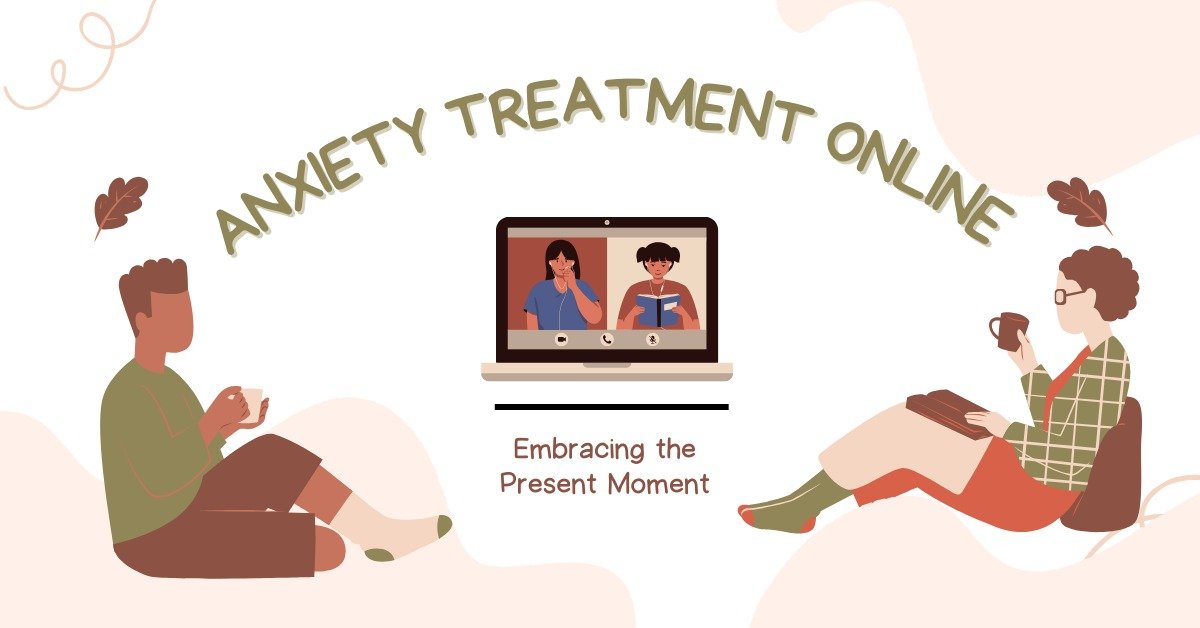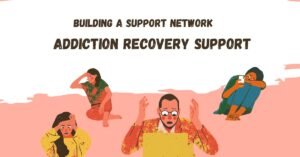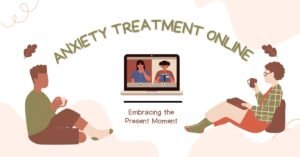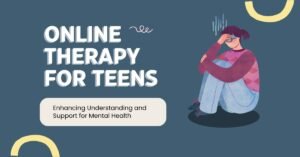In an age where digital technology has transformed countless aspects of our lives, it has also profoundly impacted the field of mental health. Online therapy has emerged as a beacon of hope for many, particularly for those suffering from anxiety. With the convenience and accessibility it offers, anxiety treatment online is not just an alternative but often a preference. For patients and providers at Passages WV, understanding the tools and techniques available can significantly enhance the effectiveness of remote therapy for anxiety. This article will explore various aspects of online anxiety treatment, including the innovative tools and effective techniques designed to support individuals wherever they may be.
The Rise of Online Anxiety Treatment
Anxiety disorders, characterized by persistent and excessive worry, are the most common mental health concerns. Fortunately, the digital evolution has facilitated a robust online platform where effective treatment is not only possible but also accessible. Remote therapy for anxiety leverages technology to break down barriers to treatment, such as location constraints and the stigma often associated with seeking mental health care.
Tools Utilized in Online Anxiety Treatment
Video Conferencing Software
High-quality video conferencing tools are the cornerstone of any online therapy service. These platforms allow therapists and clients to engage in face-to-face communication, providing a level of interaction that closely mirrors in-person sessions. For anxiety treatment, the visual cues available in video conferencing can be crucial for therapists in assessing the client’s emotional state and providing immediate feedback.
Secure Messaging Apps
Ongoing support is vital in managing anxiety disorders, and secure messaging apps fill this need by allowing clients to communicate with their therapists outside scheduled sessions. This tool is particularly useful for moments when immediate help is needed to navigate anxiety spikes, offering guidance through text that is secure and compliant with privacy regulations.
Mobile Apps for Anxiety Management
There are numerous mobile applications designed to support anxiety management, which clients can use as part of their treatment plan. These apps offer features like guided meditation, breathing exercises, and symptom tracking. Integrating these apps into the treatment process allows clients to take active steps towards managing their anxiety daily.
Virtual Reality (VR)
Emerging as a revolutionary tool in remote therapy, VR can simulate environments or situations that help clients practice coping techniques in a controlled, virtual setting. This is particularly useful for exposure therapy, a common technique used to treat certain anxiety disorders like phobias.
Techniques for Treating Anxiety Online
Cognitive Behavioral Therapy (CBT)
CBT is one of the most effective and widely used techniques for treating anxiety. Online platforms enable therapists to deliver CBT through interactive sessions, where clients learn to recognize and change detrimental thought patterns and behaviors. Digital worksheets and online CBT programs can enhance this process, allowing for real-time feedback and more dynamic engagement between the client and therapist.
Mindfulness and Relaxation Techniques
Mindfulness exercises and relaxation techniques are easily taught and practiced through online therapy. Therapists can guide clients through these practices via live sessions or pre-recorded videos, helping them develop skills to reduce anxiety by focusing on the present moment and reducing the physiological symptoms of anxiety.
Exposure Therapy
For specific types of anxiety like phobias and social anxiety, exposure therapy can be adapted for the online format. Therapists guide clients through exposure to the feared object or context in a gradual, controlled manner, using virtual reality or guided imagery to safely recreate scenarios, helping clients face and gain control over their fears.
Ensuring Effective Online Therapy
To maximize the benefits of online anxiety treatment, therapists need to ensure they are using secure, reliable platforms that protect patient privacy—a core component of successful teletherapy. Regular training on the latest technologies and therapeutic techniques also equips therapists to provide the best possible care.
Furthermore, building a rapport via digital means requires sensitivity and awareness from therapists, as establishing trust is foundational to any therapeutic relationship, particularly in the virtual therapy space.
Conclusion
Online therapy has opened new avenues for treating anxiety, making psychological support more accessible than ever before. At Passages WV, we harness these digital tools and techniques to provide comprehensive support to those struggling with anxiety, regardless of their physical location. As technology advances, so too will the ways in which we can support our clients in overcoming anxiety.







